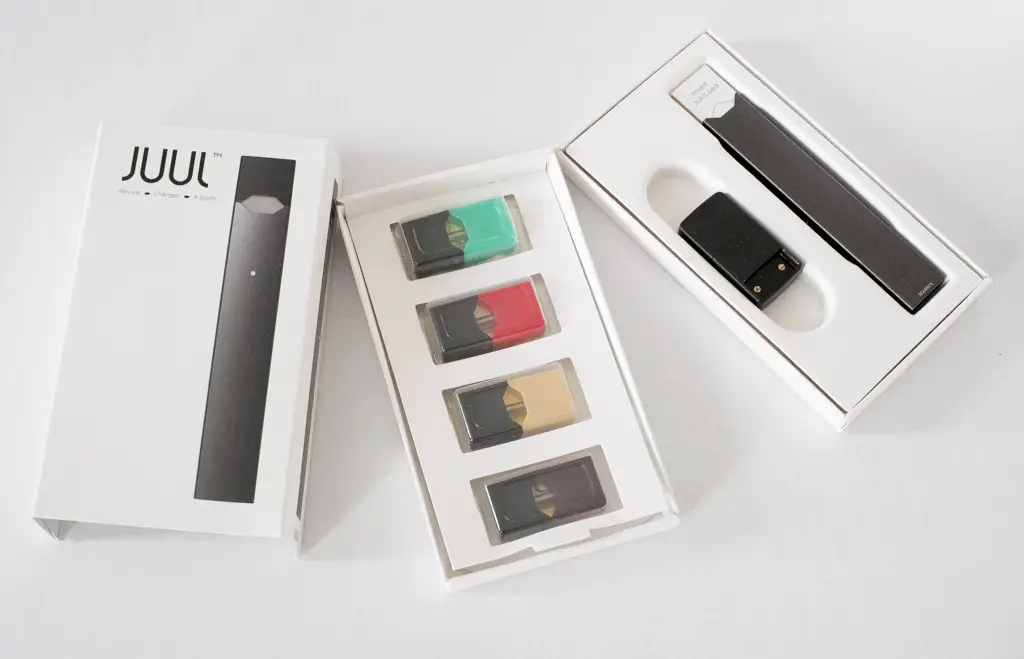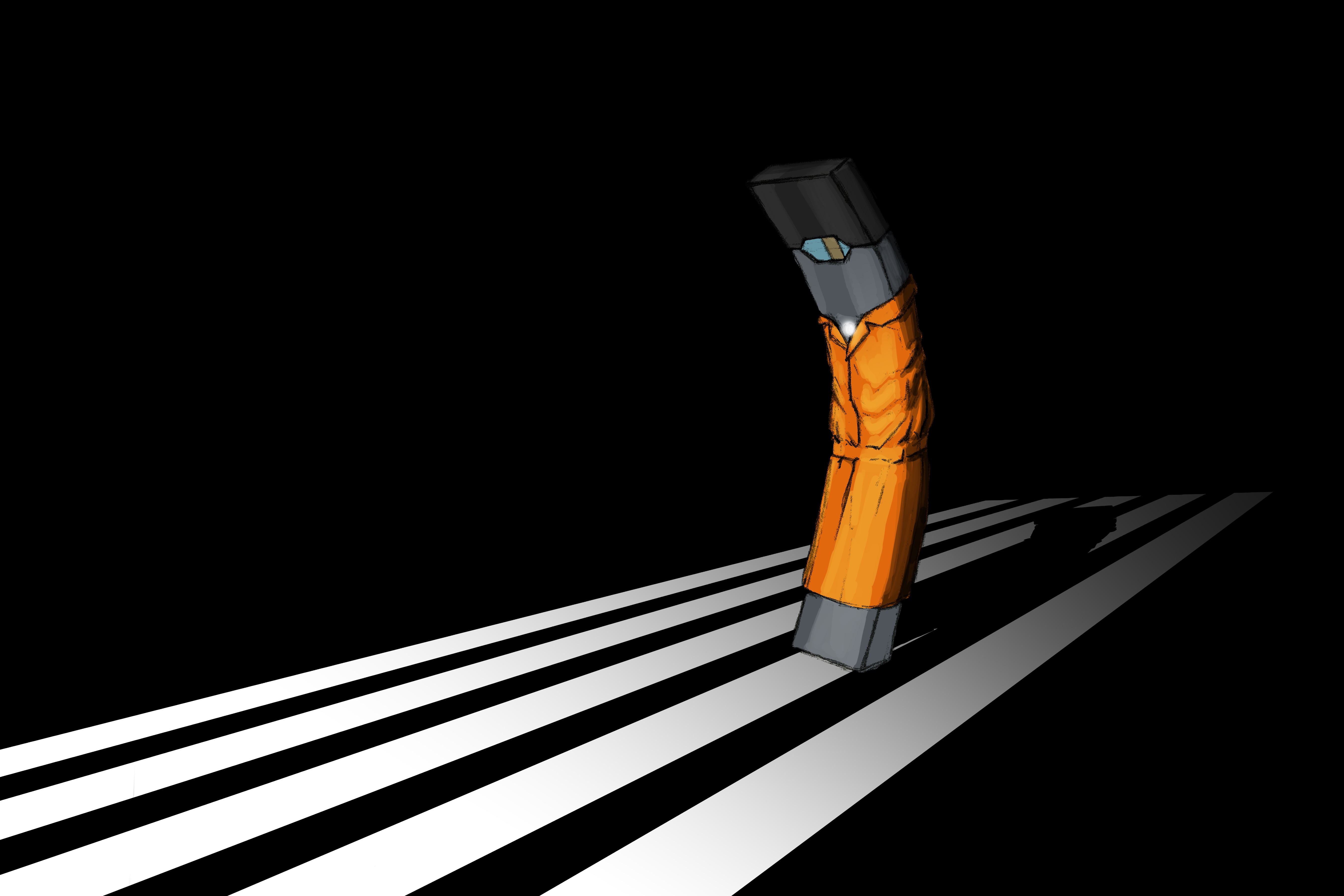In a recent slew of lawsuits against JUUL Labs, users are attempting to place blame on the company for creating and enforcing nicotine addictions due to an alleged lack of proper awareness. The latest cases come from a variety of individuals, though there’s a common ground among all of the complaints. Regardless of their ages or prior experience with vaping, all parties were deeply upset with their newfound nicotine addiction.
Another commonality? They’re all blaming JUUL for its highly addictive nature and apparent inability to alert users of such addictiveness. The company has been around since 2015 but didn’t truly begin to gain attention until 2017. JUUL pods legally contain 5 percent nicotine, despite recently receiving intense backlash from the Food and Drug Administration. Local governments have even gone as far as banning the e-cigarettes in cities like San Francisco.
While JUULs have steadily become a rather controversial product in the tobacco industry, its products are technically legal. Even with claims that JUUL advertises its products to be completely safe, the company is still being slammed with lawsuits and complaints galore.
The majority of the outrage comes from the parents of minors. There is a fair amount of noise being made from users on the older end of the spectrum, but the argument there is objectively moot. As a legal adult capable of making their own decisions, it’s slightly ridiculous to blame an e-cigarette company for high percentages of nicotine when you were the one voluntarily inhaling it.
However, the arguments originating from wrathful parents are a bit more interesting. In the case of a 15-year-old boy that goes by “D.P.,” his mom filed a complaint against JUUL Labs alleging that the company designed the product with unnecessary amounts of nicotine. She claimed that her son became extremely addicted to nicotine, thus making him constantly anxious and irritable.
https://twitter.com/ykowdan/status/1038204971932631041
His addiction apparently got so bad that she had to have him switch high schools and even remove the door from his bedroom. In response, JUUL Labs said that they didn’t believe the case had any merit whatsoever.
To be fair, you have to be at least 21 years old to legally purchase and obtain a JUUL online. In its product description, the JUUL site openly states that its products are geared toward adult smokers. There’s even a massive banner on the website that warns users of the nicotine percentage and defines it as an addictive chemical.
So despite all the angry mothers filing complaints against JUUL Labs because they’re shocked that their kids smoke, I have to make the argument that it’s not necessarily the company’s fault. In most states, individuals have to be either 18 or 21 to buy an e-cigarette or vape pen.
For someone like D.P., his JUUL usage was a decision made on his own behalf. Debatably so, 15-year-olds don’t always make the best choices, but it’s not like a JUUL was being shoved in his mouth. This was a verdict made all on his own, so perhaps his mother should be angrier with him rather than the company.
With that being said, it’s worth acknowledging the fact that JUULs have typically been advertised toward a younger audience rather than its claimed “adult smoker” demographic. JUUL Labs has even been accused of trying to attract young people through its sweet flavored pods, as well as through advertising on social media.

A principal investigator at Stanford University School of Medicine even claimed that “there’s an ample amount of evidence that JUUL launched with a promotional campaign aimed entirely at younger users and spent its first six months establishing themselves in the youth market.”
Although these accusations come from pretty credible sources, it doesn’t necessarily mean they’re true. Perhaps such claims would be decent evidence for D.P.’s mom’s case, but they’re still pretty broad statements.
If JUUL Labs goes out of its way to specifically advertise to a younger demographic, then yes, that’s pretty terrible. (Side-note: Thanks to anti-nicotine and smoking advertisements, I would like to think that the country was already collectively aware of how terrible the tobacco industry is.)
However, I’m not sure advertising would cause youths to use JUULs as much as their peers would. Personally, I would assume that being around people who use JUULs would be more persuasive than a social media ad. I digress though, considering that that’s not even the initial argument at hand — especially because JUUL Labs never claimed to be a wholesome, healthy company to begin with.
Given that, JUULs are still not being openly offered to underage individuals. When it comes to getting JUULs, the website has a pretty strict method of making sure purchasers are of age. (Reference that age verification process here.)
https://twitter.com/whoaabbey/status/1034800616281919488
If teenagers are buying them in person, that issue lies heavily on the store that sold the e-cigarette to them, not so much the company. This would be the case for individuals like D.P., who illegally obtained and utilized his JUUL. For those in similar situations, I can’t necessarily imagine feeling bad (let alone a jury feeling bad), considering D.P.’s nicotine-fueled petulance is his own fault.
Long story short, despite the best efforts of distressed suburban mothers and unsuspecting millennials with a new-found e-cigarette addiction alike, there isn’t much of an argument to be made. The blame should be placed on the users rather than the company, because JUUL Labs explicitly warns individuals of such nicotine content. This is especially true considering JUULs have been around since 2015 and very rarely received flack until its popularity grew over the past year.
At the end of the day, the only lesson to be learned here is to be more aware of what you’re inhaling. So I’ll leave you with a pro-tip: If you don’t want to get addicted to nicotine or any other nasty chemicals, you probably shouldn’t be hitting that JUUL to begin with.

















